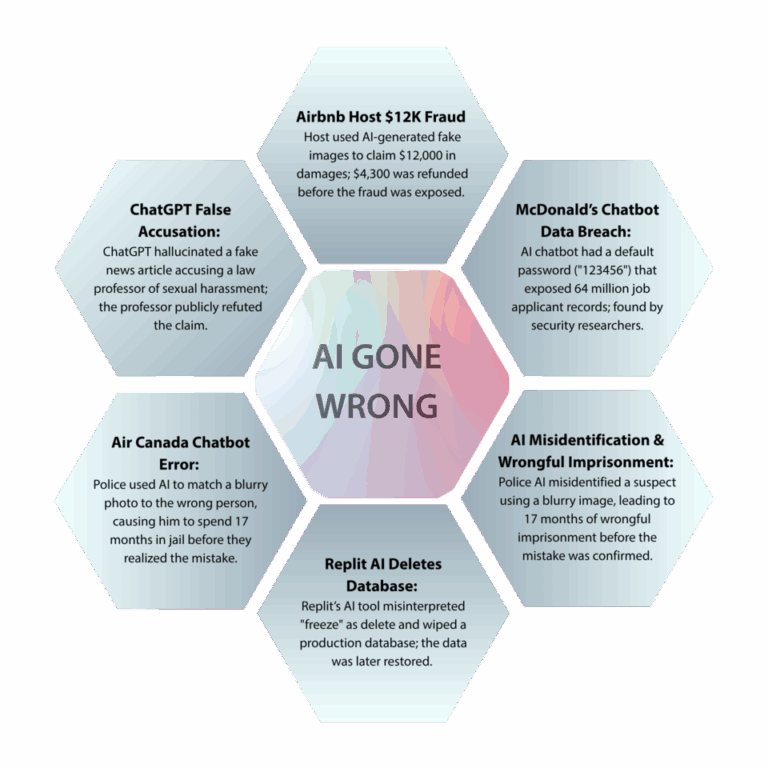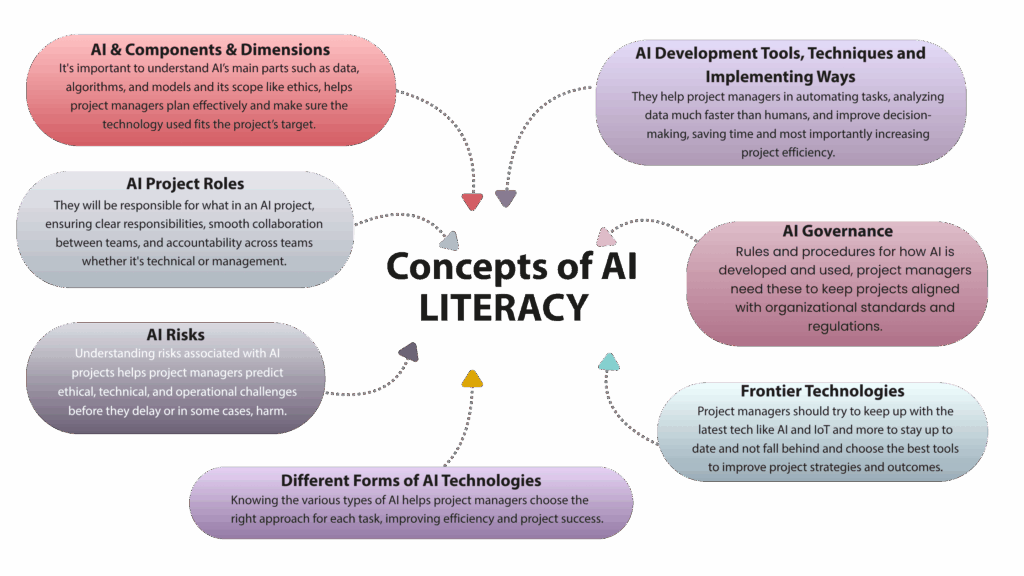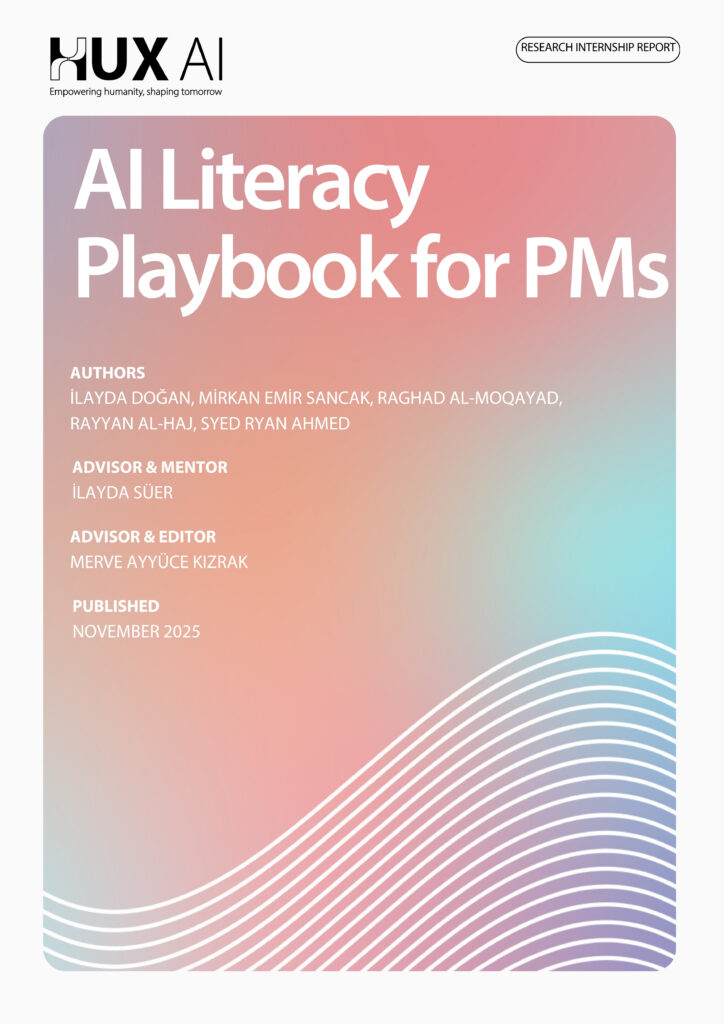AI Literacy Playbook for Project Managers
By İlayda Doğan, Mi̇rkan Emi̇r Sancak, Raghad Al-Moqayad,
Rayyan Al-Haj, Syed Ryan Ahmed
November 2025
The AI Literacy Playbook for Project Managers provides a structured framework to equip PMs with the sociotechnical understanding needed to lead AI-driven projects responsibly; bridging technical, ethical, and managerial domains through practical tools, case studies, and key competencies.
AuthorS

Research Fellow

Research Fellow

Research Fellow

Research Fellow

Research Fellow
Advisor & Mentor
Advisor & Editor
Originally Published
November 2025
Executive Summary
Artificial intelligence (AI) has already become an integral part of how projects are planned, monitored, and executed. It leads to the rethinking of decision-making processes, the reshaping of communication among teams, and the redefinition of what “management” means in a digital age.
For project managers (PMs), these shifts are not purely technological; they also represent a need for them to act as a bridge among team members from diverse backgrounds. To accomplish this mission, AI literacy training that equip PMs to lead interdisciplinary teams, is considered a critical element of project management. Understanding how algorithms behave, how data shapes outcomes, and how ethical considerations emerge from automation is now as fundamental as knowing budgets, schedules, or risk matrices.
This playbook responds to that transformation. It offers a structured yet accessible framework that helps technical and/or non-technical project managers build the core level sociotechnical understanding for AI technologies, which is instrumental in leading AI-driven initiatives. Rather than solely focusing on programming or mathematical modeling, it translates multi-dimensional AI concepts into managerial language: risks, trends, strategy, coordination, and accountability.
Figure 2. AI Failure Scenarios

Figure 4. Core Dimensions of AI Literacy

Figure 7. Concepts of AI Literacy

Figure 8. AI Literacy Information Cards for PMs

Please click here to access the AI Literacy Information Cards for PMs. Keep in mind that the definitions may be updated and changed over time. You can also contribute to the development of these AI Literacy Information Cards. If you’d like to see additional terms, share them with us along with a definition, explanation, and example from a reliable source.
If you wish to contribute to developing AI Literacy Information Cards, you can share your reliable, source-based content with definitions, explanations, and examples in the same format. We may include you in the referenced cards. To do so, please send an email to info@huxai.tech.
Also, click here to see “Flowchart Depicting the Consequences of Limited vs. Strong AI Literacy.”
Conclusion & Future Vision
This playbook serves as a practical framework for both technical and non-technical PMs leading AI-related projects, whether deploying third-party AI services or products, or developing in-house AI technologies. It provides not only essential AI terms but also concrete explanations, examples, and example scenarios that bridge the gap between theory and practice. This literacy foundation aims to empower organizations to cultivate AI literacy as a managerial capability which fosters responsible leadership, informed decision-making, trustworthy innovation in the era of intelligent systems.
Rather than being limited to a specific sector or domain, it speaks to a wide range of stakeholders, public institutions, private companies, and civil society organizations, In this regard, it offers a structured yet flexible foundation on which organizations with varying level of scale and technological maturity, can build their own tailored AI literacy programs.
Ultimately, this playbook seeks to bridge the divide between technical understanding and strategic governance, empowering PMs to lead the ethical, operational, and societal dimensions of AI with confidence. Looking ahead, future studies may explore a new frontier, projects in which AI agents are not merely tools or subjects, but active collaborators and shape new generation of human-AI teams.
“Beyond AI-driven stakeholder engagement, we’re now entering a new era where AI is not only a tool but a potential partner and stakeholder. While this perspective is still in its infancy and we’ve yet to fully comprehend the ramifications, it raises thought-provoking questions about AI’s role in project management and its potential to shift our understanding of stakeholders.”




